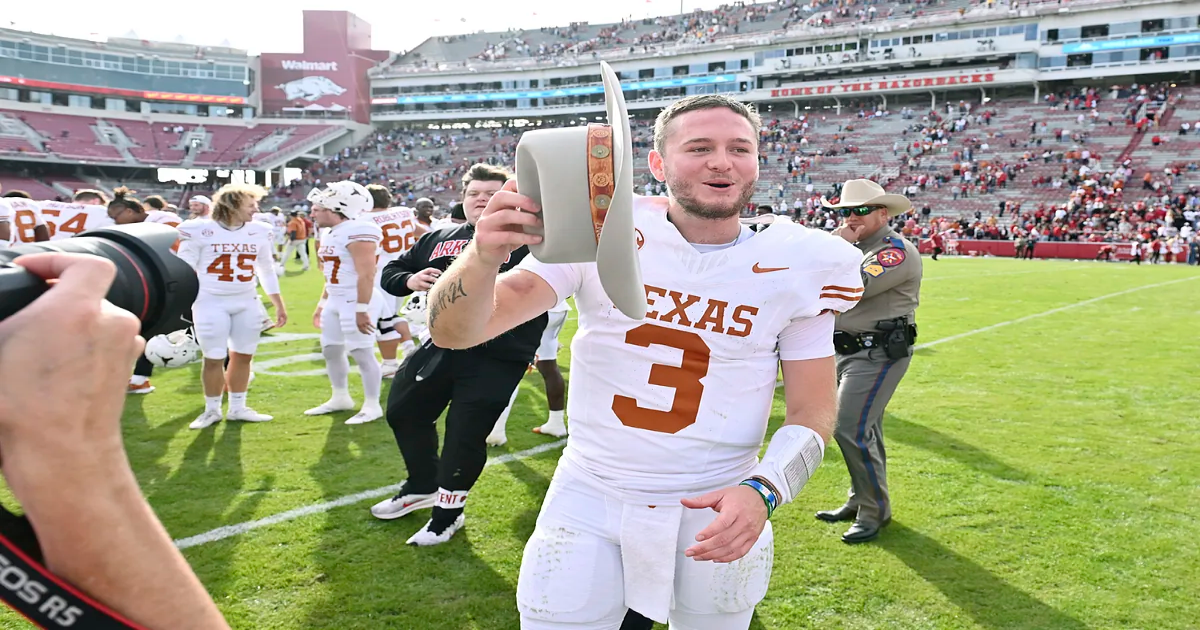Quinn Ewers iwas selected by the Miami Dolphins with the No. 231 overall pick in the seventh round of the 2025 NFL Draft, marking the start of his professional career. But even as he joins the Dolphins roster to compete alongside Tua Tagovailoa and Zach Wilson, questions linger about whether Ewers made the right call leaving college early.
Ewers began his collegiate career in 2021 with the Ohio State Buckeyes but saw limited action, appearing in just one game. He then transferred to the University of Texas, where he truly came into his own. Over three seasons with the Longhorns, Ewers played in 36 games, completing 737 of 1,135 pass attempts for 9,128 passing yards and 68 touchdowns.
Arch Manning lands NIL deal with Red Bull and proves he’s the next elite QB
His growth at Texas turned him into a viable NFL prospect, but many analysts believed that staying in school for another year – or transferring to a different program – could have significantly boosted both his draft stock and his earnings.
Ewers’ rookie contract sparks debate over early NFL entry
As the No. 231 pick in the draft, Ewers is projected to sign a four-year, $4,331,384 rookie contract with the Dolphins, including a $131,331 signing bonus, according to Spotrac. That places his average annual salary at just over $1 million – a solid figure for a seventh-rounder, but one that pales in comparison to what he might have made by remaining in college.
NBC Sports reported that Ewers could have earned as much as $4 million in NIL (Name, Image, Likeness) compensation had he stayed one more year at Texas. That figure could have doubled if he had entered the transfer portal. Sources cited Miami and Notre Dame as potential landing spots, and either program may have pushed his NIL earnings up to $8 million – almost double the total value of his current NFL contract.
In light of those numbers, some have questioned whether Ewers left too soon, especially since an additional year of college play could have positioned him as a higher draft pick in 2026, likely securing more favorable financial terms.
Still, Ewers‘ decision wasn’t purely about money. After four years in college, he may have felt ready for the next step, especially after leading Texas to significant success and showing steady improvement as a passer. His performance – both in terms of production and leadership – helped reestablish the Longhorns as a contender and demonstrated his NFL potential.
